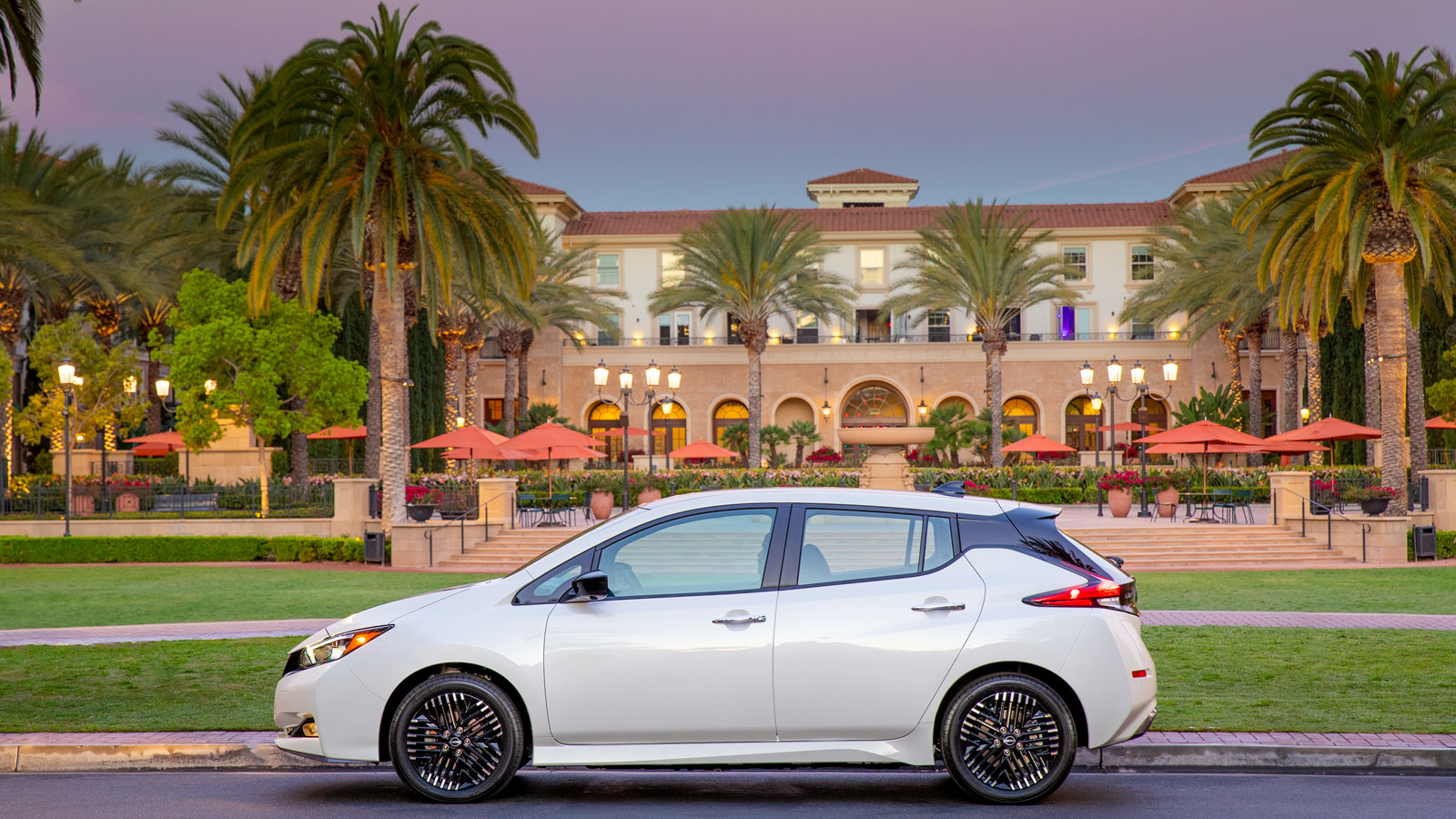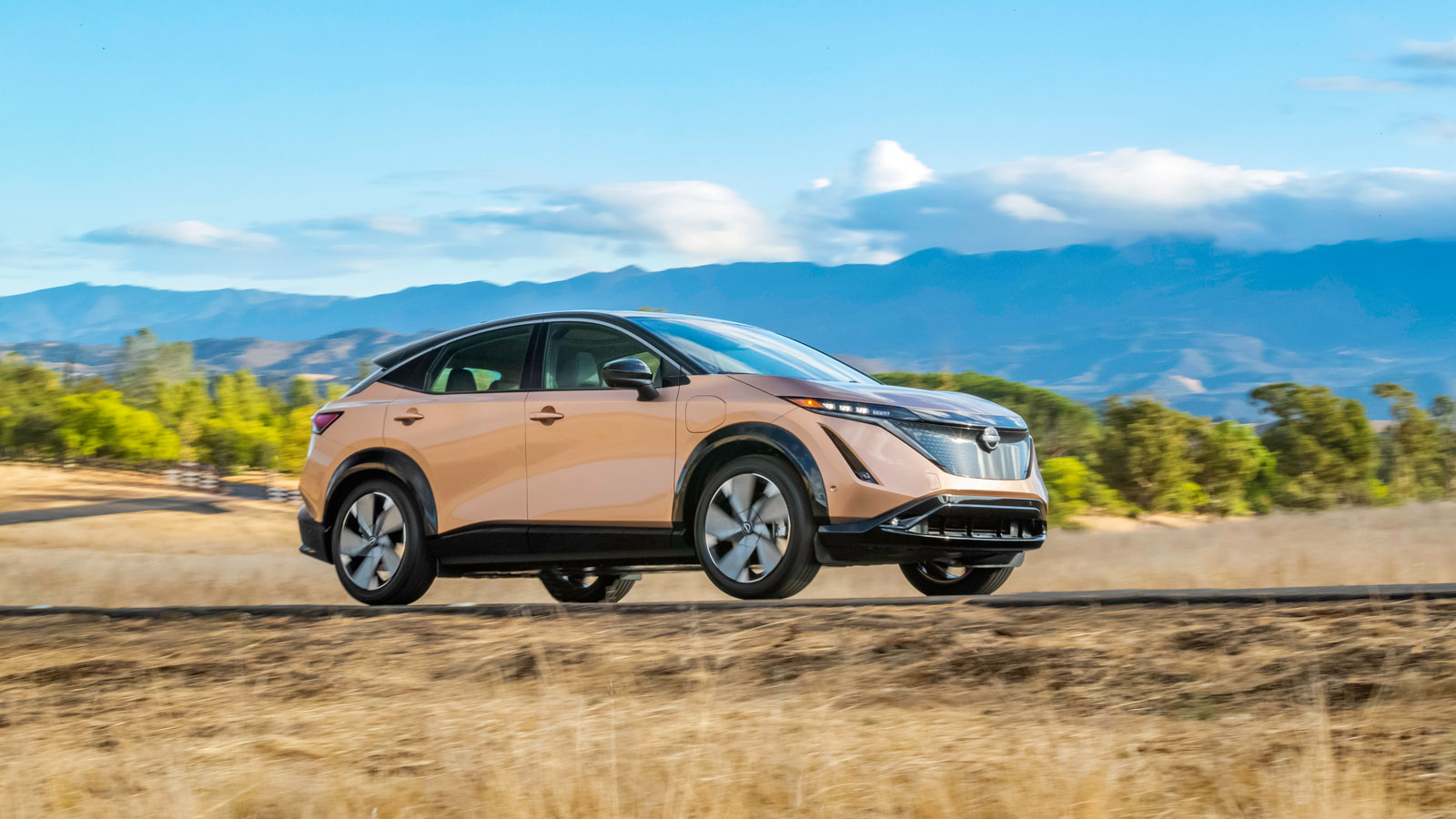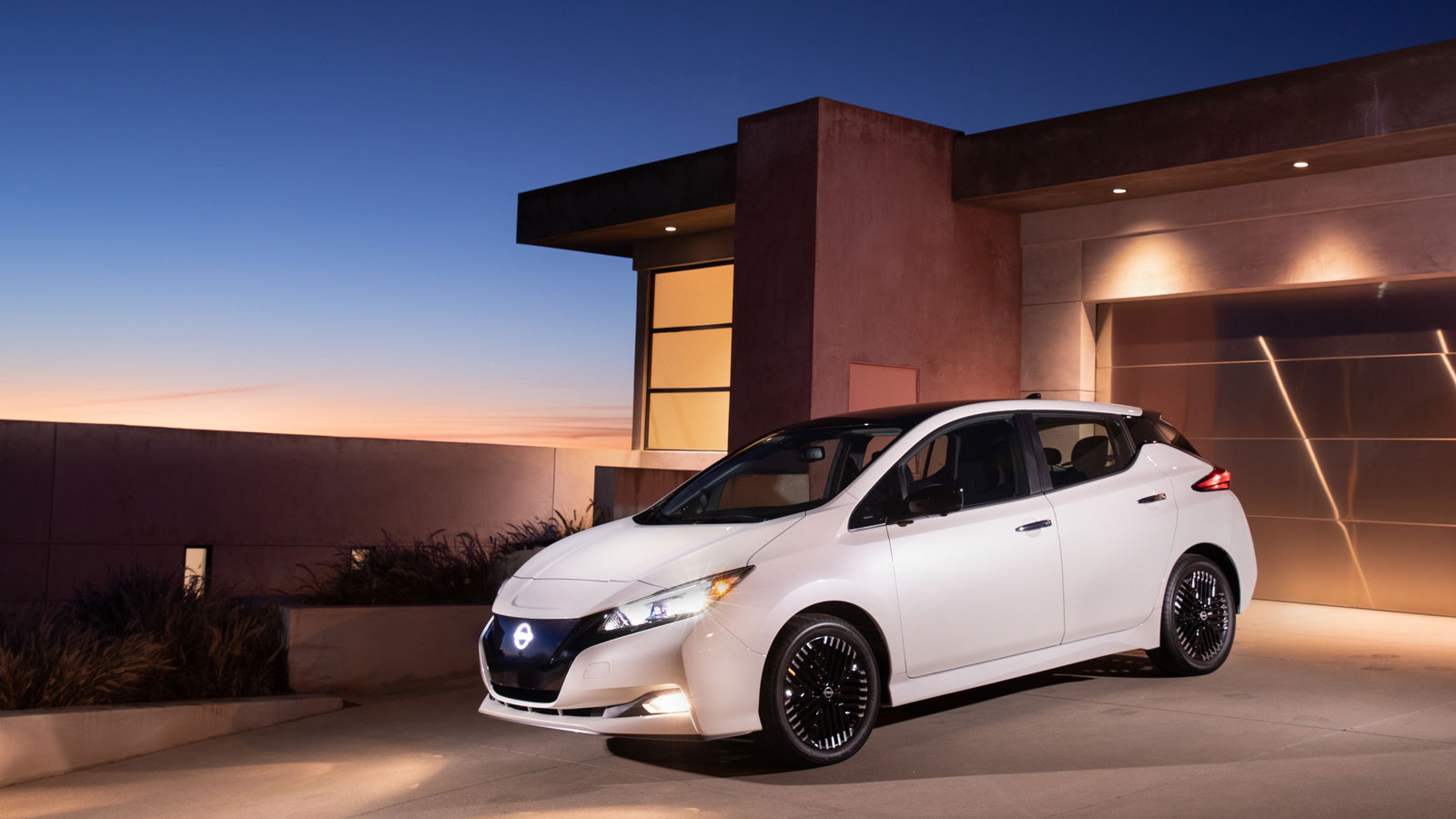The Nissan Leaf's Days Are Numbered: Report
Rumor says the Leaf will die around 2025, replaced by a different type of EV.
The Nissan Leaf could be considered something of a pioneer in the electric vehicle space. In 2010, Nissan decided that the world needed an affordable, hatchback EV long before the likes of the Tesla Model 3 or Chevrolet Bolt hit the market. But, it failed to ignite the interest of buyers to the same extent as some of its later rivals. And, despite a recent facelift, it sounds like Nissan might be preparing to phase out its first EV.
According to Automotive News, Nissan has no plans to replace the current Leaf with a next-generation model. Instead, it will cease production of the EV "by mid-decade" and will replace it with a "new model more tuned to the needs of the modern EV buyer." Automotive News reports:
"Nissan spokesman Brian Brockman declined to speculate on the future of the Leaf but noted 'renewed' customer interest due to the vehicle's "value proposition" and the growing demand for EVs."
The decision to ax the pioneering electric car comes just a few months after Nissan unveiled a facelift of the Leaf. Premiered at this year's New York Auto Show, the refreshed Leaf will roll out in 2023 with some slick new wheels and an array of styling tweaks across the board.

The updated Leaf is expected to achieve similar range to its predecessors — 149 miles for the 40-kWh Leaf S and 226 miles for the 62-kWh SV Plus.
Despite its handsome looks and a range that should suit most drivers, the Leaf struggled to catch on here in the U.S. In 2011, Nissan sold 9,674 Leafs here in the America, and 2020 saw it sell 9,564.
Yet, an uptick in popularity last year to more than 14,000 Leafs sold doesn't seem to be enough to rescue the Leaf from the chopping block.
And with Nissan's Ariya electric crossover set to arrive on these shores later this year, the outdated Leaf may no longer fit with its vision for an electric future. From Automotive News:
"Nissan could replace the Leaf with a coupe-like crossover, which the automaker teased last year in a sporty concept called the Chill-Out. It uses Nissan's CMF-EV platform and features a dual-motor all-wheel-drive system called e-4orce."

The first generation Leaf was the very first mass-produced electric car from a major manufacturer when it hit the roads in 2011.
The second generation Leaf was unveiled in 2017, but by this point it had some flashy new rivals on the electric forecourt. This meant the updated Leaf ended up falling by the wayside as the likes of Tesla, Hyundai and Ford stepped in to claim America's EV sales.
Now, the Leaf lacks the flashy design of Hyundai's EVs, the gimmicks of a Tesla's and the brand prestige of an electric Mustang or F-150. So maybe Nissan is right to let the Leaf go and come back with something to take the electric fight to the top three.
